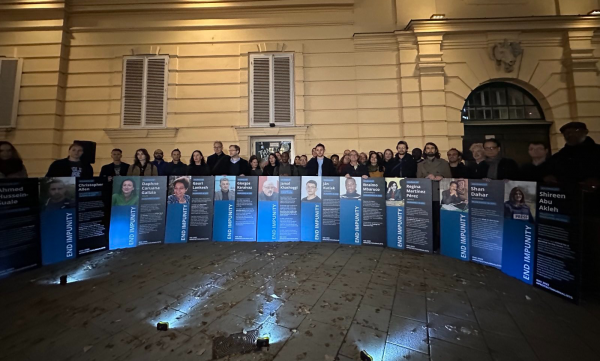Violence has intensified in Syria in the wake of a failed United Nations Security Council Resolution, with news reports suggesting Syrian security forces killed as many as 50 people in the city of Homs on Monday morning.
Russia and China on Saturday jointly vetoed a resolution that would have backed an Arab League plan calling on Syrian President Bashar al-Assad to step down. All 13 other Security Council members voted in favour of the resolution.
The two countries’ controversial decision came on the heels of what appears to have been the deadliest Syrian army attack since protests began in the country nearly a year ago. Citing eyewitness accounts, the London-based Syrian Observatory for Human Rights said that well over 200 people were killed overnight Friday and Saturday morning, international media reported.
Syrian government restrictions on independent media, however, make it virtually impossible to verify death tolls or the exact nature and course of specific events. Syria has largely banned foreign media from operating inside its borders, and its state media reports differ wildly from the scant information that does reach the outside world.
A handful of foreign journalists, including the BBC’s Paul Wood, have nevertheless managed to find a way into the country. Reporting from Homs on Monday morning, Wood wrote, “It was a quiet night until just after dawn, when we started hearing mortars falling – about one every 30 seconds.”
Referring to eyewitness reports that the government had moved “infantry troops” to the outskirts of Homs, Wood added, “It is not yet an invasion, but that is what people fear over the next day or so.”
But Syria’s state-run media on Monday denied launching a bombardment on Homs, insisting that “armed terrorist groups” were attacking civilians and police, according to AP. The same media claimed that activists in the city were lighting tires on fire to make it seem as though a government assault were taking place.
IPI Press Freedom Manager Anthony Mills said, “The absence of independent media reporting in Syria severely hinders the world’s understanding of what is taking place there. The role of a journalist is to report the facts, not to take sides in a conflict. We urge the Syrian government to end the media blockade and allow independent journalists to do their jobs.”
At least three journalists have been killed in Syria during the anti-government uprising, according to IPI’s Death Watch. Shukri Abu el-Burghol, a journalist formerly with a Syrian state-run newspaper, was shot on January 2. Gilles Jacquier, a correspondent for France 2 television, was killed in a grenade explosion while covering demonstrations in Homs on January 11. Last November, cameraman Ferzat Jarban was found with his eyes gouged out after filming protests in the town of al-Qasir, in Homs province.
The Russian and Chinese vetoes unleashed a storm of criticism over the weekend, with leading figures in the Western and Arab worlds interpreting Russia’s decision in particular as implicit support for the Assad regime.
Yemeni journalist and Nobel Peace Prize winner Tawakkul Karman, a key figure in the Arab Spring movement, on Sunday called Assad’s actions a “war on humanity”, according to news reports. Russia and China, she added, would now have to “bear the moral and human responsibility for these massacres”.


